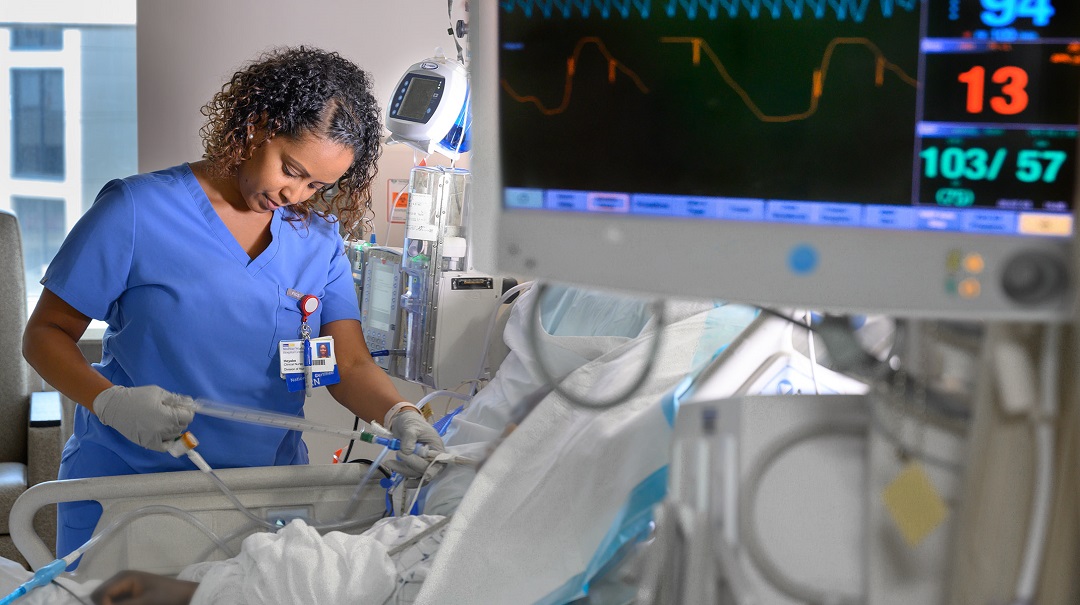Find care now
If you are experiencing a medical emergency, please call 911 or seek care at an emergency room.

As a physician, one of the most rewarding experiences for me is to see our trauma patients recover from their complex injuries. Fortunately, this happens often at MedStar Washington Hospital Center, thanks to the amazing work of our MedSTAR Trauma, neurosurgery, and intensive care teams. At the same time, however, we still need to understand more about treating a specific type of patient--those who have suffered a severe traumatic brain injury (TBI). These complex injuries can lead to a wide range of immediate and long-term problems both for the brain and for other organs of the body, and it is still difficult to accurately predict the effect on a patient’s quality of life.
That’s why we are so excited about the new BOOST-3 clinical trial. Through this randomized, multi-center study, we are trying to better understand how to monitor and treat TBI for both immediate survival and long-term health.
The Centers for Disease Control and Prevention estimates that 2.5 million Americans suffer a traumatic brain injury each year. While some TBIs are mild, others are considered severe, causing slurred speech, profound confusion, and loss of consciousness that can last from minutes to weeks. Severe TBI contributes to 30 percent of all injury-related deaths, and many who suffer a TBI experience long-term disabilities.
Through BOOST-3, we hope to learn more about reducing deaths and improving overall outcomes.
What is Traumatic Brain Injury and How Does BOOST-3 Work?
The American Association of Neurological Surgeons defines TBI as “a blow to the head or a penetrating head injury that disrupts the normal function of the brain.” Imaging, such as a CT Scan or an MRI, is used to confirm trauma to the brain. Among the patients who come to the MedSTAR Trauma Center with a TBI, the most common causes are accidents involving vehicles (cars, motorcycles, or bicycles), falls, sports injuries, and violence—either gunshots or other assaults.
One constant among all severe TBI patients is brain swelling, the body’s natural reaction to injury. This swelling increases the pressure inside the skull, and our first step is to surgically create an opening in the skull to relieve the pressure. We then continuously monitor this “intracranial pressure,” and use medication to keep it under control while the patient’s brain stabilizes and heals.
Until now, this was considered the gold standard for treating TBI patients. But recent clinical trials have shown that another factor may also need our attention: brain tissue oxygenation.
The brain has very limited levels of oxygen reserves and it must have a continuous flow of oxygen-rich blood to function. A TBI can disrupt this flow, which can lead to additional brain damage.
Through the BOOST-3 Trial, we will be able to compare the results of two different ways of treating patients with TBI. We will monitor the pressure and brain oxygenation in all patients but will randomize them into two groups for treatment. One group will receive the traditional care for intracranial pressure and the other will receive treatments for both pressure and brain oxygenation. We will then follow each patient for six months, and researchers will compare certain functional and neurological outcomes between the two groups.
We began our participation in BOOST-3 in April, and we are one of 45 clinical sites across the country involved in this important study. The goal is to enroll nearly 1,100 patients nationally over the next five years.
MedStar Washington Hospital Center is participating as part of our involvement with SIREN (Strategies to Innovate Emergency Care Clinical Trials Network). Funded by the National Institutes of Health, SIREN is focused on improving outcomes for patients who suffer a wide range of critical injuries. The goal of SIREN’s research studies is to identify the most effective treatments in the earliest stage of care.
This kind of study requires a high degree of teamwork among the members of the trauma team, neurosurgeons, intensivists (physicians who specialize in treating patients in critical care), and our highly skilled nurses. At the Hospital Center, we can attribute much of our trauma and critical care success throughout the years to our strong commitment to working together as a team, rather than in siloes, for the best possible patient care. This has become our hallmark, making it possible to participate in studies such as BOOST-3.














